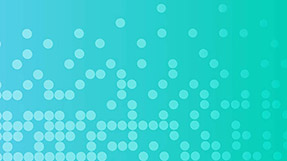
Jeannille
My Background
While pursuing a natural resources undergraduate degree at Cornell University, the computer language R was introduced to me in a population modeling course. This introduction to computer science is what hooked me. Following graduation, I worked field seasons as a field technician for bird research projects in various locations in South Carolina and Australia. I enjoyed collecting blood samples, banding birds, and taking part in the research. I was able to identify each unique bird on sight just based on their band. It’s incredible to watch how much effort they put into survival. However, I have always had a passion for data, and the three years I spent working in this sector only served to reaffirm that. I thus made the risky decision to relocate to a new place in order to consider my alternatives for a different line of work and started the Align program.
Bridge
Despite my love of finding solutions, I have to be honest and say that my time at Align has been difficult. Until very recently, I worked more than 20 hours per week at MIT while attending challenging classes. Due to my lack of a strong foundation in computer science, I also experienced impostor syndrome in the fall. However, it was quite helpful to get to know the other students in my cohort. When I began interacting with and working with others, things really improved. I began to see that in this program, solving challenges collaboratively is essential to success.
Interdisciplinary
I have participated in computer science pop-up seminars and classes since 2014 and since joining Align in the fall, I have learned Python and Ruby as well as more about the computer science industry. I got a job in the MIT library and then I went to an investment company to audit tax returns. Later, I went back to MIT where I worked at the Institute for Data, Systems, and Society in marketing and communications. I have always pushed hard to obtain interdisciplinary education and experiences. My first year of college was spent at the SUNY College of Environmental Science and Forestry (ESF) in upstate New York before I transferred to Cornell. I believe that in order to connect the fieldwork and data-gathering components of ecology and conservation to the predictive modeling and decision-making components, one must have an interdisciplinary perspective. Being able to provide diverse viewpoints is crucial. It resembles working as a front-end and back-end developer. In order to have an influence, you must understand all aspects of your problem. I am frequently asked why a bird-catching field technician is so intrigued with coding but have always felt that there are many similarities between the two fields of interest. Learning systems in a new way is one of the things I enjoyed most about ecology. The natural ecosystem is the original system because it demonstrates how things interact and how altering one element would affect all the others.
My Future
I am thrilled with my decision to pursue a career in computer science, and although I am not yet sure what I want to specialize in, I am especially interested in information security and data science. Through the Align program, I have found I really enjoy the testing and debugging phases of the coding process. I am eager to get beyond simple tasks and put my abilities towards something more impactful. Working as a computer scientist gives me the kind of meaningful job that makes me so much more productive. Although this program is challenging, my future career possibilities have become more significant and I have experienced a great feeling of success upon completing the program.